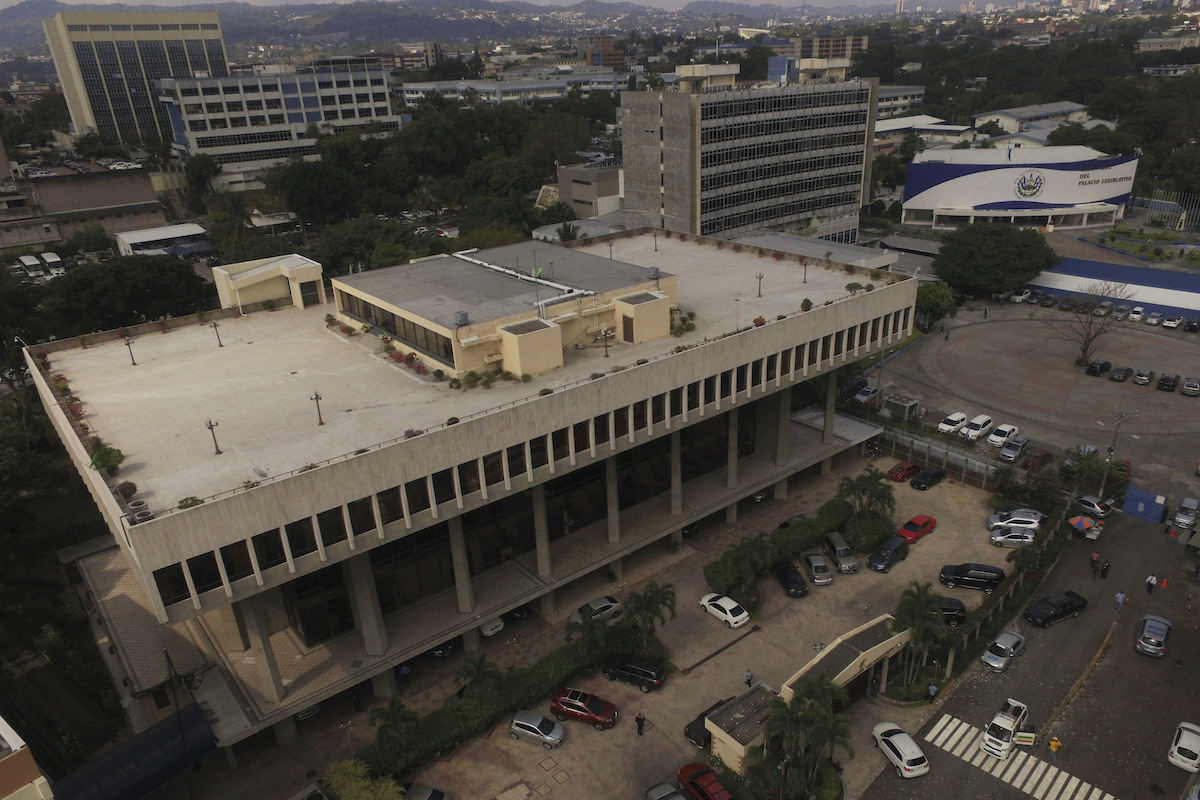

El Salvador’s Supreme Court stands in San Salvador, El Salvador, Monday, May 3, 2021. (AP Photo/Salvador Meléndez)
By MARCOS ALEMÁN, Associated Press
SAN SALVADOR, El Salvador (AP) — Hours after a “cordial” meeting with El Salvador President Nayib Bukele, White House Special Envoy Ricardo Zúñiga told Salvadorans that he conveyed a message of concern over the country’s direction.
Zúñiga’s visit came less than two weeks after El Salvador’s newly elected Legislative Assembly was seated and promptly cleared out all members of the constitutional chamber of the Supreme Court. The judges had been an obstacle to Bukele, but his party’s new supermajority gave it power to choose justices and replace the attorney general on May 1.
Zúñiga expressed opposition to that process in a television interview on Wednesday: “I think it is important to say that we do not agree with the decision by the Legislative Assembly to remove the five judges and the attorney general. For us, it would be best to return to the situation that existed until April 30.”
Bukele appeared to reject that proposal via Twitter later Wednesday.
“For the voices that still ask us to return to the past, with much respect and affection: the changes that we have made are IRREVERSIBLE,” he wrote. “We are not going to return to the past, we will go toward the future. We would like them to accompany us, but if they don’t want to we understand.”
Para las voces que aún piden que volvamos al pasado.
Con mucho respeto y cariño:
Los cambios que estamos realizando son IRREVERSIBLES.
No vamos a volver al pasado, iremos hacia el futuro.
Quisiéramos que nos acompañaran, pero si no lo desean, los comprendemos.
Bendiciones.
— Nayib Bukele ?? (@nayibbukele) May 12, 2021
Zúñiga, who was tapped by President Joe Biden to focus on the Northern Triangle countries of El Salvador, Honduras and Guatemala, said on the morning news show “Frente a Frente” that the U.S. government believes the move violated El Salvador’s constitution.
Critics have expressed growing concern that Bukele is using his popularity to consolidate power and weaken El Salvador’s other democratic institutions.
Zúñiga said he and Bukele met Tuesday.
Zúñiga had also visited El Salvador last month, but was snubbed by the president. That followed a similar snub Bukele allegedly received from U.S. officials during an unannounced trip to Washington in February.
Bukele had a good relationship with the Trump administration, in large part because the number of Salvadorans migrating to the U.S. border had fallen significantly. The Biden administration has expressed interest in a broader range of issues in the region.
Vice President Kamala Harris has been tasked with finding ways to address the root causes of migration in Central America. Among the factors she has spoken about are corruption, poverty, human rights and climate change.
On Tuesday, Zúñiga also met with members of the Legislative Assembly’s leadership. He has said that his trip was to collect information about the current situation in El Salvador so the Biden administration can discuss future steps.
El Salvador depends greatly on U.S. cooperation, giving the Biden administration some potential levers. Some 250,000 Salvadorans live and work in the U.S. with temporary protected status. Those Salvadorans plus thousands more working in the U.S. sent home nearly $6 billion last year in remittances, accounting for 17.1% of the nation’s GDP.
Any changes would have to be weighed against the impact on El Salvador’s economy and what that could mean for migration.
“Our commitment to El Salvador remains strong,” Zúñiga said. “In the congress, they have to analyze with us whether there are areas of cooperation that could be affected.”


